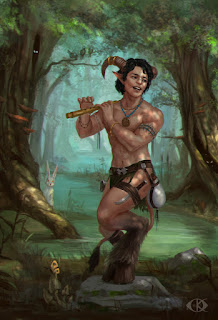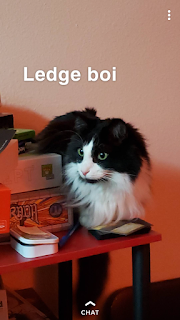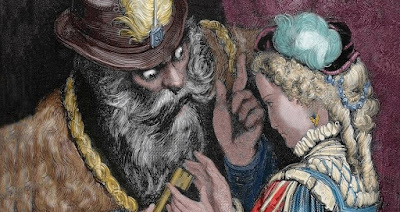Reading Notes: Ovid III, Part A
This week, I will be reading the last few parts of Ovid's Metamorphoses, a compilation of Greek and Roman myths of transformations - at times, explaining the existence of some phenomena, or providing the explanation for the name of some land or feature. The first of these stories in this block falls into the latter category - the tale of Daedalus and Icarus.
The story of Icarus is a caution against hubris, older than much of the Western world. It tells of an artificer named Daedalus, who desires to escape his exile on Crete with his son, Icarus. He fashions wings of feathers, reeds, and wax to sail high above the domain of the tyrant Minos, who keeps him there. He warns Icarus not to fly too low, lest the moisture of the sea pull him down, and not to soar too high, lest the sun melt the wax holding the wings together. They soar off of Crete, like gods in flight to spectators below, and Icarus is so enamored with the experience, he forgets his father's words and soars too high, crashing down toward the sea as his wings fall apart. The mourning father retrieves his son's body, burying it in a tomb on an island that would soon be named for the boy - Icaria.
As is evident, Greek tales are often tragedies. One story I had never encountered before this was the Shirt of Nessus - the tale is a piece of the great legend of Hercules, the hero amongst heroes in Greco-Roman mythology. The Shirt of Nessus quickly tells of the attempted abduction of Hercules' betrothed, before the centaur-kidnapper Nessus is slain with an arrow laced with the Hydra's poison. Nessus his gives shirt to the woman, lined with his blood and the poison, which she keeps. When a rumor of Hercules' adultery spreads to her, many years later, she sends to him the shirt, as though to rekindle "a waning love". Naturally, the poison, packed with the metaphors of the deeds he committed, burns his body away, and he laments all his victories and tasks done to gain immortality, all for naught. He curses the world, but eventually gains his wish, as his body is burnt in the hottest flame by the gods, and Hercules is placed amongst the stars.
The story of Icarus is a caution against hubris, older than much of the Western world. It tells of an artificer named Daedalus, who desires to escape his exile on Crete with his son, Icarus. He fashions wings of feathers, reeds, and wax to sail high above the domain of the tyrant Minos, who keeps him there. He warns Icarus not to fly too low, lest the moisture of the sea pull him down, and not to soar too high, lest the sun melt the wax holding the wings together. They soar off of Crete, like gods in flight to spectators below, and Icarus is so enamored with the experience, he forgets his father's words and soars too high, crashing down toward the sea as his wings fall apart. The mourning father retrieves his son's body, burying it in a tomb on an island that would soon be named for the boy - Icaria.
 |
| The Death of Hercules |
As is evident, Greek tales are often tragedies. One story I had never encountered before this was the Shirt of Nessus - the tale is a piece of the great legend of Hercules, the hero amongst heroes in Greco-Roman mythology. The Shirt of Nessus quickly tells of the attempted abduction of Hercules' betrothed, before the centaur-kidnapper Nessus is slain with an arrow laced with the Hydra's poison. Nessus his gives shirt to the woman, lined with his blood and the poison, which she keeps. When a rumor of Hercules' adultery spreads to her, many years later, she sends to him the shirt, as though to rekindle "a waning love". Naturally, the poison, packed with the metaphors of the deeds he committed, burns his body away, and he laments all his victories and tasks done to gain immortality, all for naught. He curses the world, but eventually gains his wish, as his body is burnt in the hottest flame by the gods, and Hercules is placed amongst the stars.
Bibliography:



Comments
Post a Comment